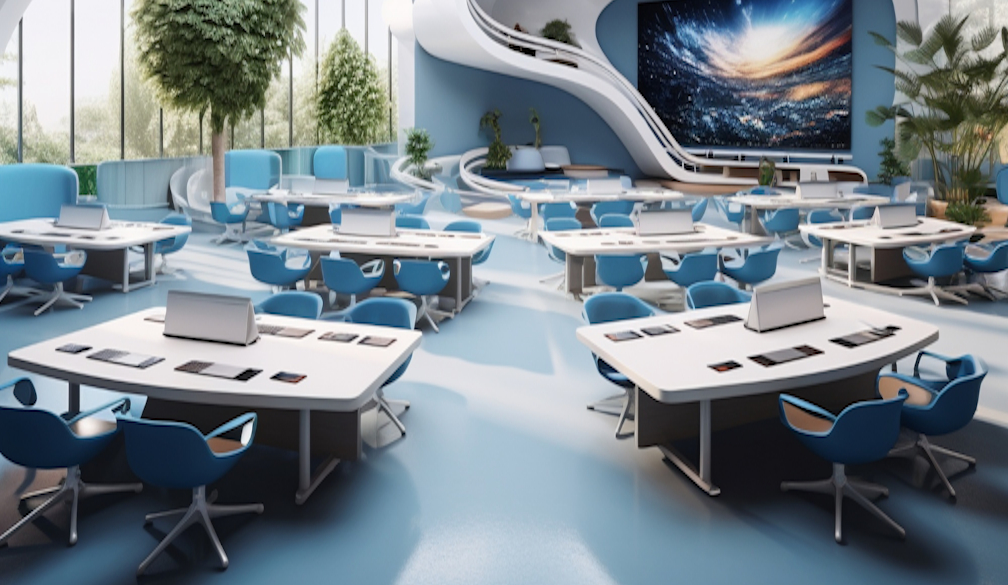Embracing the Future – Technology Integration in Modern Office Layouts

In today’s rapidly evolving business landscape, the design of office spaces has become a pivotal aspect of organisational success. Modern offices are no longer just about open plans or ergonomic chairs; they are about creating environments that foster collaboration, innovation, and productivity. At the heart of this transformation is the integration of advanced technology, from smart lighting systems to sophisticated collaborative tools.
This blog post delves into how technology is redefining contemporary office design and why embracing these innovations is crucial for businesses aiming to stay ahead.
Smart Lighting: Illuminating Efficiency and Well-Being
One of the most noticeable changes in modern office design is the adoption of smart lighting. These systems go beyond mere energy efficiency; they are designed to adapt to the natural circadian rhythms of employees, enhancing comfort and reducing eye strain. Smart lighting can be automatically adjusted based on the time of day or the amount of natural light in the office, creating a workspace that not only saves energy but also promotes a healthier work environment.
Collaborative Tools: Bridging Spaces and Minds
The rise of digital collaboration tools has transformed the way we think about office space. Video conferencing platforms, shared digital workspaces, and real-time project management tools have made remote collaboration more efficient than ever. These technologies enable teams to stay connected and work together seamlessly, regardless of physical location. The design of modern offices now often includes dedicated spaces equipped with the technology needed for virtual meetings, reflecting the importance of connectivity in today’s work culture.
Agile Workstations: The Backbone of a Flexible Office
As businesses move towards more dynamic work models, the traditional concept of a fixed desk for each employee is becoming outdated. Instead, agile workstations, which can be easily reconfigured to suit different tasks and team sizes, are becoming the norm. These workspaces are designed to support a variety of work modes, from focused individual tasks to collaborative group projects. For those looking to order office workstations in Australia, it’s important to choose solutions that are not only functional but also designed to integrate seamlessly with other technology in the office.
IoT and Automation: The Silent Revolution
The Internet of Things (IoT) and automation are quietly revolutionising office spaces. From automated HVAC systems that adjust the temperature based on occupancy, to IoT-enabled appliances that can order their own supplies, technology is making offices smarter and more efficient. These systems not only reduce the administrative burden on employees but also help in minimising operational costs.
Sound Masking: Enhancing Acoustic Comfort
In open-plan offices, noise can be a significant distraction. Sound masking technology is an innovative solution that adds a level of ambient noise to the environment, making speech less intelligible over distances and thereby reducing distractions. This technology plays a critical role in maintaining acoustic comfort, allowing employees to focus better and be more productive.
Embracing Technology: A Strategic Imperative
The integration of technology into office design is not just about adopting the latest gadgets; it’s about creating an environment that supports the way we work today and anticipates the needs of tomorrow. As businesses continue to evolve, the ability to adapt to new technologies and integrate them into the workplace will be a key determinant of success.
For organisations looking to redesign their office spaces, the journey begins with a clear understanding of how technology can enhance their operations and support their workforce. By embracing these innovations, businesses can create spaces that not only meet the demands of today’s work culture but also pave the way for future advancements.Top of Form





